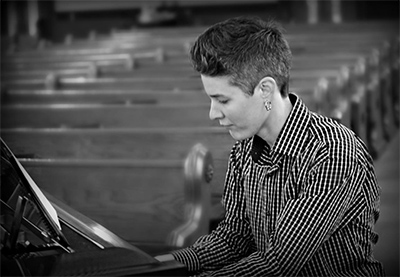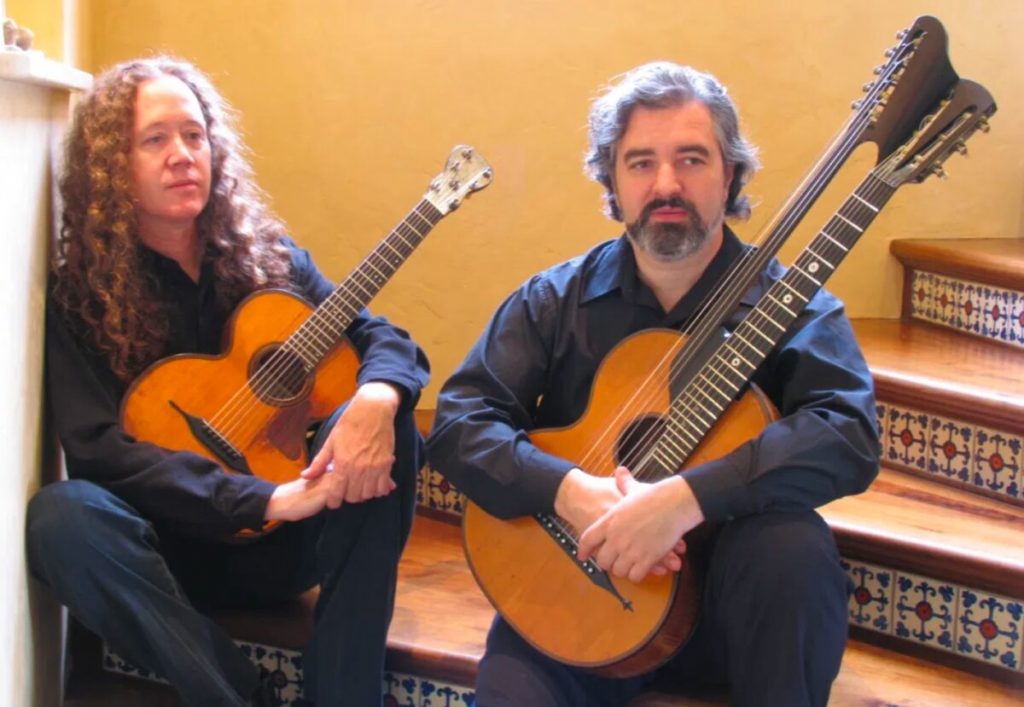by Jarrett Hoffman

•Concerts from organist Rowan Draper and the Cleveland Silent Film Festival and Colloquium
•Cooper Competition returns
•Applications for Kent Blossom Music Festival and camps from The Music Settlement
•In the news: Beethoven’s Fidelio reimagined in light of Black Lives Matter, and an emphasis on Florence Price at Carnegie Hall
•The almanac: Mikhail Glinka and The Czar’s Guitars
HAPPENING TODAY:
At 12:00 pm, organist Rowan Draper plays music by Felix Mendelssohn, Sigfrid Karg-Elert, Hugo Distler, and Thierry Escaich on the Church of the Covenant’s Tuesday Noon series. It’s free, whether in-person or streamed.
And at 7:30 pm, the Cleveland Silent Film Festival and Colloquium continues with a free program of short silent films accompanied live by Oberlin Conservatory students at the Birenbaum.
Details in our Concert Listings.
IN THE NEWS:
The Cooper Competition is returning this summer, August 15-19 at Oberlin Conservatory. This year, violinists ages 13-18 will compete not only in a revised format, but also with financial support for all participants, and for an increased prize package. Read Erich Burnett’s story here.
Applications for the Kent Blossom Music Festival are due tonight by 11:59 pm. The Festival, which accepts strings, woodwinds, piano, and horns, will take place from July 3 to August 8, capped off by a side-by-side concert with The Cleveland Orchestra at Blossom Music Center. More information here.
The Music Settlement is offering camps this summer for musicians of all ages and skill levels. Programs include Suzuki, jazz, rock and pop, spirituals, interdisciplinary workshops, music therapy, chamber music, choir, songwriting, piano, cello, bass, ukulele, and several offerings aimed at early childhood. Find out more here.
INTERESTING READS:
In The New York Times, Joshua Barone reviews Heartbeat Opera’s reimagining of Beethoven’s Fidelio — here a commentary on mass incarceration, and steeped in the Black Lives Matter movement.
On the other hand, the absence of Beethoven was notable in another recent concert in New York. To be clear, the Philadelphia Orchestra is devoting much of its programming to that composer for its performances at Carnegie Hall this season. But a visit from the ensemble last week was one part Samuel Barber, two parts Florence Price, with Price’s Symphony No. 1 as the program’s anchor — a position that, as Zachary Woolfe notes, is still rarely given to women and composers of color. Read Woolfe’s review here.
TODAY’S ALMANAC:
Mikhail Glinka, who died on February 15, 1857, is considered the father of Russian classical music, and was an important influence on the next generation, which included names such as Tchaikovsky, Mussorgsky, Rimsky-Korsakov, and Alexander Borodin (who also died on this date in 1887).
Tchaikovsky summed up Glinka’s influence most poetically. Referring to the Russian symphonic school, he said, “It’s all in Kamarinskaya, just as the whole oak is in the acorn.”
Click here to listen to the music of that Glinka opera in the hands of guitarists John Schneiderman and Oleg Timofeyev. That duo, known as The Czar’s Guitars, is devoted to 19th-century Russian music, often taking up different versions of the Russian seven-string guitar, an instrument that once nearly disappeared but is recently undergoing a revival. Listen to the entire Czar’s Guitars album The Music of Glinka in a YouTube playlist here.
Other events to note on this date in music history:
- The birth of Australian composer Miriam Hyde in 1913
- The birth of American composers John Adams (1947) and Christopher Rouse (1949)
- The death of American vocalist, jazz pianist, and actor Nat King Cole in 1965
- The launch of YouTube in the U.S. in 2005




